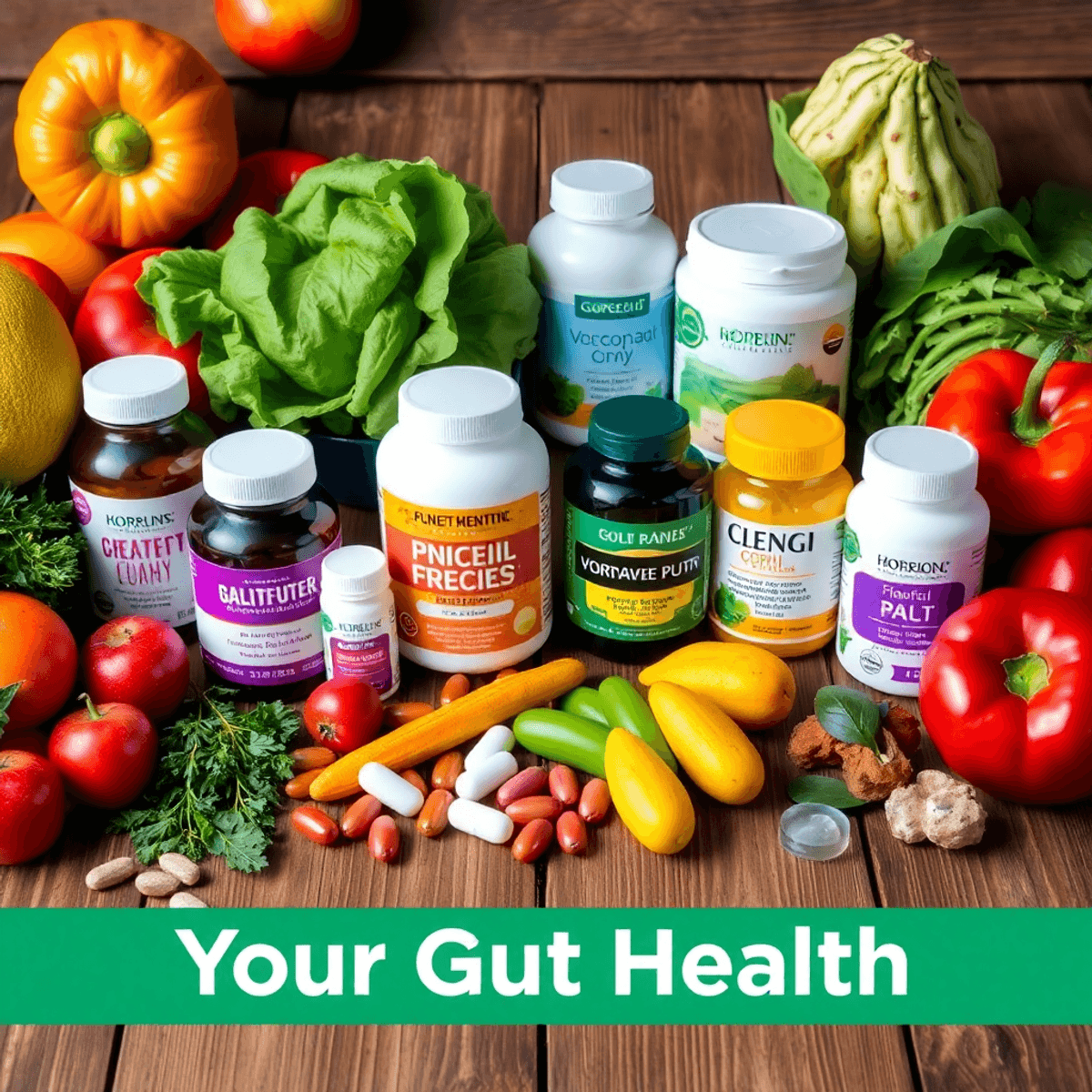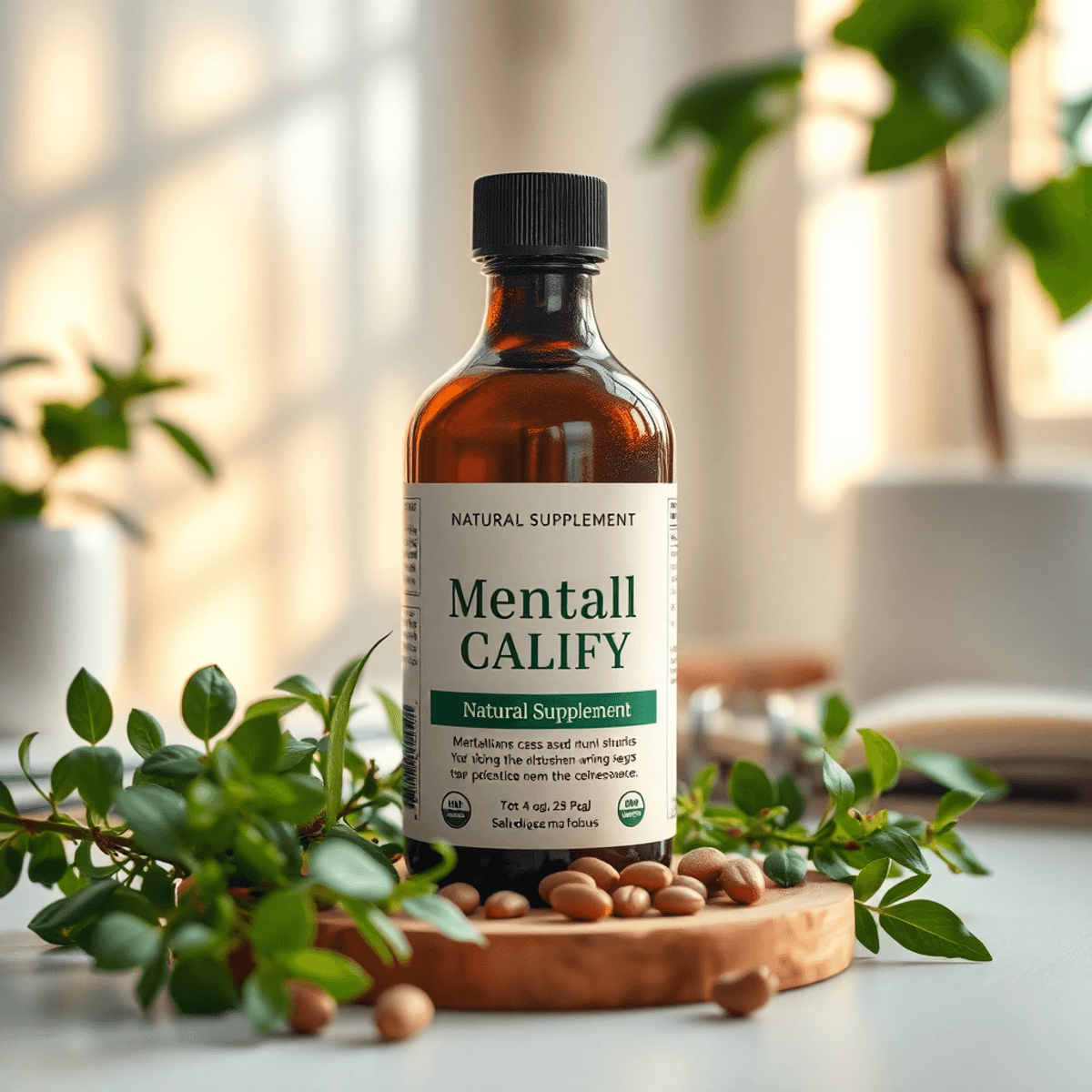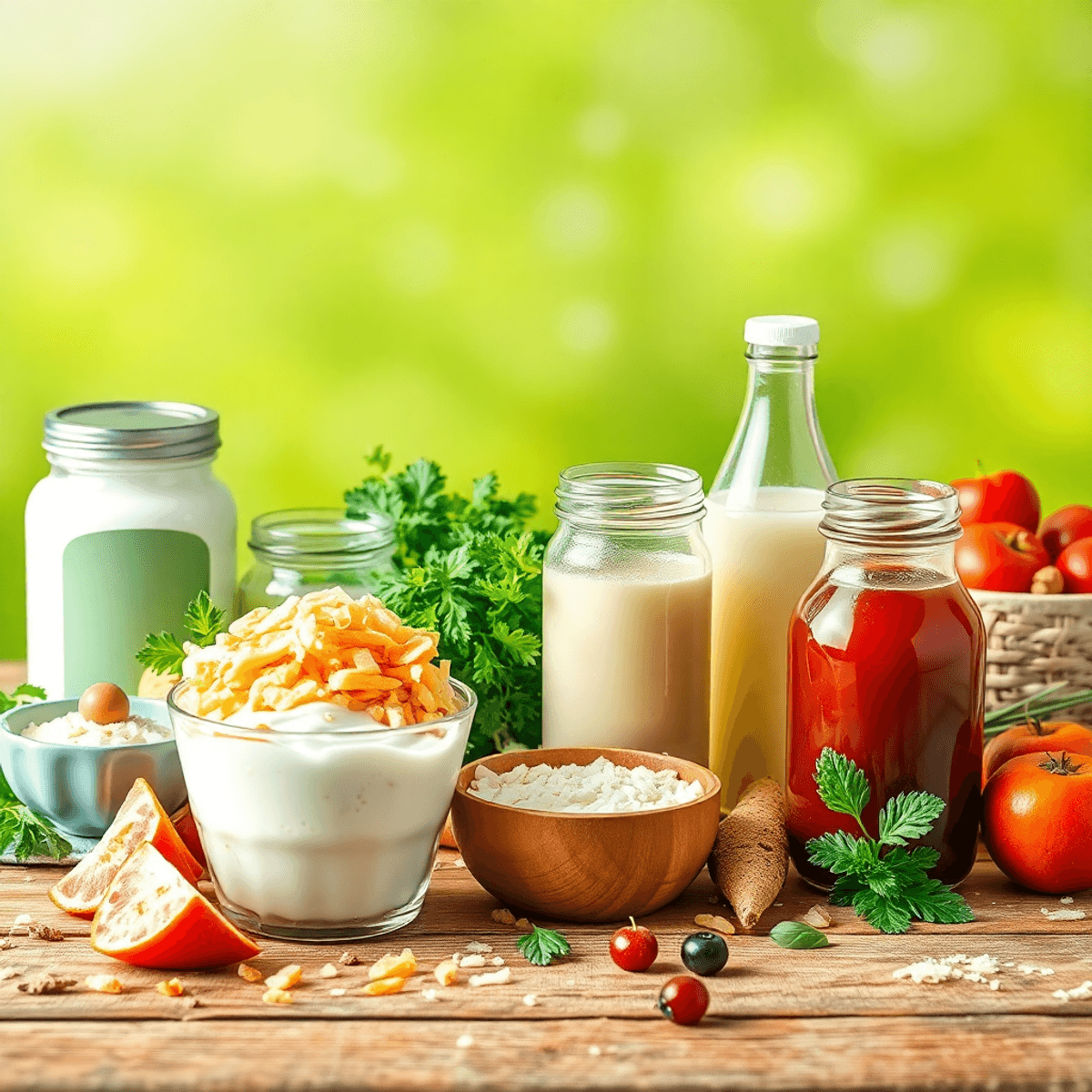Introduction
Are you struggling with digestive discomfort and bloating? You’re not alone. Millions of people face these challenges daily, searching for effective solutions to support their gut health. The right vitamins and supplements can make a significant difference in managing these uncomfortable symptoms.
Your gut health plays a crucial role in your overall well-being, affecting everything from your immune system to your mental health. When your digestive system isn’t functioning optimally, you might experience:
- Frequent bloating
- Digestive discomfort
- Irregular bowel movements
- Food sensitivities
- Low energy levels
The good news? Specific vitamins and supplements can help restore balance to your digestive system and reduce bloating. From probiotics that support your gut microbiome to essential vitamins that aid digestion, these natural solutions can provide relief and promote long-term gut health.
Let’s explore the best vitamins for gut health and bloating, helping you make informed decisions about which supplements might work best for your specific needs.
Understanding Gut Health
Your gut health represents the balance and functionality of your digestive system, including the complex community of microorganisms living in your intestines. A healthy gut supports proper digestion, nutrient absorption, and immune function.
What is the Gut Microbiome?
The gut microbiome consists of trillions of bacteria, fungi, and other microorganisms that play vital roles in:
- Breaking down food particles
- Producing essential vitamins
- Supporting immune system function
- Regulating metabolism
- Influencing brain health and mood
How Lifestyle Choices Affect Your Gut Microbiome
Your gut microbiome responds directly to your lifestyle choices. Key factors affecting your gut health include:
- Diet: The foods you eat can either nourish or disrupt beneficial gut bacteria
- Sleep patterns: Poor sleep can alter gut bacterial composition
- Stress levels: Chronic stress may reduce beneficial bacteria
- Physical activity: Regular exercise promotes microbial diversity
- Medications: Antibiotics can disrupt the natural balance of gut bacteria
Common Digestive Disorders and Their Impact on Gut Health

Common digestive disorders can significantly impact gut health. Irritable Bowel Syndrome (IBS) affects 10-15% of the global population and presents symptoms like:
- Abdominal pain
- Irregular bowel movements
- Excessive gas
- Bloating
- Food sensitivities
The gut-brain connection plays a crucial role in IBS, as stress and anxiety can trigger or worsen symptoms. Research shows that gut bacteria communicate with your nervous system, affecting both digestive function and mental well-being.
Understanding these gut health fundamentals helps you make informed decisions about dietary choices and lifestyle modifications that support your digestive system’s optimal function.
The Impact of Bloating on Gut Health
Bloating occurs when your belly feels full, tight, and distended. This common digestive issue affects up to 30% of Americans, causing physical discomfort and emotional distress.
Common Causes of Bloating:
- Excess gas production from certain foods
- Swallowing air while eating
- Food intolerances (lactose, gluten)
- Bacterial imbalances in the gut
- Constipation
- Eating too quickly
- High-sodium diets
- Hormonal changes
Underlying Health Conditions:
- Celiac disease
- Small intestinal bacterial overgrowth (SIBO)
- Inflammatory bowel disease
- Gastroparesis
- Certain medications
Physical Symptoms:
- Visible abdominal distention
- Stomach pain and cramping
- Excessive gas
- Rumbling or gurgling sounds
- Pressure in the abdomen
Bloating significantly impacts daily activities and quality of life. You might experience difficulty concentrating at work, reduced physical activity, and changes in eating habits. Many people report feeling self-conscious about their appearance when bloated, leading to social anxiety and reduced confidence.
The severity of bloating varies throughout the day, often worsening after meals. Some people experience mild discomfort, while others face severe pain that interferes with sleep and regular activities. Understanding these symptoms helps identify triggers and develop effective management strategies.
Key Vitamins and Supplements for Gut Health and Bloating Management
A well-balanced combination of vitamins and supplements can significantly improve your gut health and reduce bloating symptoms. Let’s explore these essential nutrients, starting with one of the most crucial elements: probiotics.
1. Probiotics: The Beneficial Bacteria for Your Gut
Probiotics are live microorganisms that support your digestive system’s natural balance. These beneficial bacteria play a vital role in:
- Breaking down food particles
- Absorbing nutrients
- Supporting immune function
- Maintaining gut barrier integrity
- Reducing inflammation
Research shows probiotics can effectively manage bloating symptoms, particularly in people with Irritable Bowel Syndrome (IBS). Specific probiotic strains, such as Lactobacillus and Bifidobacterium, have demonstrated significant success in reducing abdominal discomfort and gas production.
You can incorporate probiotics into your diet through:
Natural Food Sources:
- Yogurt with live cultures
- Kefir
- Kombucha
- Sauerkraut
- Kimchi
- Miso
Supplement Options:
- Multi-strain probiotic capsules
- Probiotic powders
- Liquid probiotic formulations
When choosing a probiotic supplement, look for products containing:
- Multiple bacterial strains
- CFU (Colony Forming Units) count between 1-10 billion
- Delayed-release capsules for better survival through stomach acid
- Proper storage requirements
- Third-party testing certification
The timing of probiotic intake matters – taking them 30 minutes before meals can maximize their effectiveness. Start with a lower dose and gradually increase it to allow your body to adjust and minimize potential side effects like temporary gas or bloating.
Different probiotic strains serve different purposes. For example, L. acidophilus helps with lactose digestion, while B. longum reduces inflammation. Working with a healthcare provider can help identify the most beneficial strains for your specific gut health needs.
2. Prebiotics: Nourishing Your Gut Bacteria with Fiber
Prebiotics serve as the essential fuel source for your beneficial gut bacteria. These specialized dietary fibers pass through your digestive system undigested until they reach your colon, where they feed and stimulate the growth of healthy bacteria.
Think of prebiotics as fertilizer for your gut garden. They create an optimal environment for beneficial bacteria to thrive, leading to:
- Improved nutrient absorption
- Enhanced immune system function
- Better mineral absorption, particularly calcium
- Reduced inflammation in the digestive tract
- Chicory root
- Jerusalem artichokes
- Garlic
- Onions
- Bananas
- Asparagus
- Dandelion greens
While prebiotics offer significant benefits for gut health, it’s crucial to introduce them gradually into your diet. Starting with large amounts can trigger temporary discomfort, including:
- Increased gas production
- Bloating
- Stomach rumbling
- Mild cramping
Recommended Daily Intake: Start with 3-5 grams of prebiotics daily, gradually increasing to 15-20 grams as your body adjusts. People with sensitive digestive systems or IBS should begin with smaller amounts and monitor their body’s response.
The key lies in finding your personal tolerance level. Some individuals might need to limit certain prebiotic-rich foods while still maintaining adequate intake through other sources. This balanced approach helps maintain gut health without triggering uncomfortable symptoms.
3. Digestive Enzymes: Helping Your Body Break Down Food
Digestive enzymes are special proteins that help break down the food you eat into smaller parts that your body can absorb and use. These enzymes are really important for digestion because they target specific types of food:
- Amylase: This enzyme breaks down complex carbohydrates, such as starches, into simpler sugars.
- Lipase: Lipase is responsible for processing fats and oils, breaking them down into fatty acids and glycerol.
- Protease: Protease enzymes dismantle proteins into smaller peptides and amino acids, making them easier to absorb.
- Lactase: Lactase is an enzyme that specifically breaks down lactose, the sugar found in milk and dairy products.
Your body naturally produces these digestive enzymes in different organs:
- Pancreas
- Small intestine
- Stomach
- Salivary glands
When Can Digestive Enzyme Supplements Help?
If you have certain digestive issues or conditions, your body may not produce enough of these enzymes on its own. In such cases, digestive enzyme supplements can be particularly beneficial. Here are some situations where these supplements may help:
- Lactose intolerance: If you’re unable to digest lactose properly due to low lactase levels, taking lactase supplements can help you enjoy dairy products without discomfort.
- Celiac disease: People with celiac disease may have difficulty breaking down gluten. While avoiding gluten is essential, some individuals find that taking protease supplements can support their digestion.
- Inflammatory bowel disease: Conditions like Crohn’s disease or ulcerative colitis can affect enzyme production and nutrient absorption. Supplementing with specific enzymes may provide relief from symptoms.
- Age-related enzyme deficiency: As we age, our bodies may produce fewer digestive enzymes. This can lead to difficulties in digesting certain foods. Taking a broad-spectrum enzyme supplement might help improve digestion.
- Pancreatic insufficiency: If your pancreas doesn’t produce enough digestive enzymes due to conditions like pancreatitis or cystic fibrosis, enzyme replacement therapy may be necessary.
What Does Research Say About Digestive Enzyme Supplements?
Studies suggest that supplementing with digestive enzymes can reduce common digestive symptoms experienced by many people:
- Gas
- Bloating
- Indigestion
- Fullness after meals
- Nutrient malabsorption
How Should You Choose and Take Digestive Enzyme Supplements?
When selecting a digestive enzyme supplement, consider the following tips:
- Look for products containing multiple types of enzymes to support comprehensive digestion.
- Start with a low dose and gradually increase as needed based on your body’s response.
- Experiment with timing—some individuals find it most effective to take enzymes before meals, while others benefit from taking them during meals.
Important Note
If you have a diagnosed digestive condition such as celiac disease or pancreatic insufficiency, it’s crucial to consult your healthcare provider about specific enzyme supplements that match your needs. They can provide personalized recommendations based on your medical history and current health status.

4. Ginger: Nature’s Anti-Inflammatory Ally for a Happy Gut
Ginger is a powerful natural remedy for digestive health, with a long history of traditional use and scientific research supporting its benefits. The active compounds in ginger, such as gingerols and shogaols, have anti-inflammatory properties that can help reduce inflammation in the digestive system.
Ginger’s Impact on Bloating
A study published in the World Journal of Gastroenterology found that ginger can speed up gastric emptying (the process of food leaving the stomach) by up to 25%. This is important because slow gastric emptying is one of the main causes of bloating. The study also showed that participants who regularly consumed ginger experienced significant improvements in their bloating symptoms.
Recommended Forms and Dosages
Here are some recommended forms and dosages of ginger:
- Fresh ginger root: 1-2 inches daily
- Ginger tea: 2-3 cups daily
- Crystallized ginger: 2-3 pieces after meals
- Ginger supplements: 250-1000mg daily
Key Benefits for Gut Health
Ginger offers several benefits for gut health, including:
- Reducing nausea and digestive discomfort
- Decreasing intestinal inflammation
- Promoting healthy gut muscle movement
- Supporting balanced stomach acid production
To get the most out of ginger, try to include fresh ginger in your daily routine. You can do this by using it in your cooking or making ginger tea. Here are some ways to incorporate raw ginger into your diet:
- Add grated or chopped ginger to smoothies
- Use sliced ginger in stir-fries or curries
- Steep fresh ginger slices in hot water to make tea
Start with small amounts of ginger to see how your body reacts, and gradually increase the quantity based on your tolerance.
Consistency is Key
Research suggests that ginger works best when consumed consistently over a period of time. Aim to include ginger in your diet for at least 2-4 weeks to experience its full benefits. Many people notice improvements in bloating and digestive comfort within the first week of regularly consuming ginger.
5. Peppermint Oil: Relaxing Your Digestive Tract to Ease Discomfort
Peppermint oil is a natural remedy for digestive discomfort, thanks to its active ingredient, menthol. This powerful compound works by blocking calcium channels in the intestinal muscles, creating an antispasmodic effect that helps relax the digestive tract.
Clinical Evidence
A study published in the Journal of Clinical Gastroenterology found that enteric-coated peppermint oil capsules reduced IBS symptoms by up to 40%. These specialized capsules prevent the oil from releasing in the stomach, delivering it directly to the intestines where it’s most effective.
Recommended Usage
- Take 0.2-0.4ml of enteric-coated peppermint oil capsules 2-3 times daily
- Use between meals to prevent reflux
- Start with a lower dose to assess tolerance
Clinical Benefits
- Reduces abdominal pain and bloating
- Decreases intestinal spasms
- Improves overall gut motility
- Provides antimicrobial properties
A 2019 meta-analysis revealed that peppermint oil significantly outperformed placebo in treating IBS symptoms. The study showed particular effectiveness in reducing abdominal pain intensity and duration.
Safety Note: While peppermint oil is generally safe, some people may experience heartburn or acid reflux. Always choose enteric-coated formulations and consult your healthcare provider before starting supplementation, particularly if you have GERD or hiatal hernia.
6. Psyllium: Soluble Fiber Powerhouse for Regularity Without Discomfort
Psyllium husk stands out as a natural soluble fiber source that effectively promotes digestive regularity. This gentle fiber works by absorbing water in your intestines, forming a gel-like substance that aids smooth bowel movements without causing excessive gas production.
The key to maximizing psyllium’s benefits lies in proper usage:
- Mix 1-2 teaspoons with 8 ounces of water
- Drink immediately before the mixture thickens
- Start with small amounts and gradually increase intake
- Consume additional water throughout the day
Research shows psyllium can help:
- Reduce constipation symptoms
- Support healthy cholesterol levels
- Maintain blood sugar balance
- Promote feelings of fullness
Important Usage Tips:
- Take psyllium at least 2 hours apart from medications
- Never consume it dry – always mix with adequate liquid
- Listen to your body and adjust dosage as needed
While psyllium offers numerous benefits, some users might experience mild bloating during the initial days of use. This typically subsides as your body adjusts to increased fiber intake. Starting with a small dose allows your digestive system to adapt gradually, minimizing potential discomfort.
For optimal results, incorporate psyllium into your daily routine consistently. This natural fiber supplement works best when combined with a balanced diet and proper hydration.
Essential Vitamins Supporting Gut Health Beyond Supplements
Your body needs specific vitamins to maintain optimal gut health. Here’s what research reveals about key vitamins:
Vitamin D
- Supports immune function in the gut
- Low levels linked to IBS symptoms
- Regular sun exposure + dietary sources help maintain healthy levels
Vitamin B12
- Essential for proper digestion
- Supports nerve function in the digestive system
- Critical for those with chronic digestive issues
Magnesium
- Helps relax digestive muscles
- Provides natural constipation relief
- Reduces bloating symptoms
Vitamins C & E
- Work together to reduce gut inflammation
- Strengthen immune system function
- Support healing of digestive tissue
These vitamins work best when obtained through a balanced diet rich in whole foods. Foods like fatty fish, leafy greens, nuts, seeds, and colorful fruits provide natural sources of these essential nutrients. Speak with your healthcare provider about potential deficiencies that might affect your gut health.
FAQs (Frequently Asked Questions)
What is gut health and why is it important?
Gut health refers to the balance and function of the digestive system, particularly the gut microbiome, which plays a critical role in digestion and overall well-being. A healthy gut is essential for nutrient absorption, immune function, and can influence various health conditions.
What causes bloating and how does it affect daily life?
Bloating is often caused by dietary factors, such as overeating, consuming gas-producing foods, or underlying health conditions like IBS. Symptoms include abdominal discomfort and swelling, which can significantly impact daily activities and quality of life.
How do probiotics benefit gut health?
Probiotics are beneficial bacteria that help maintain a healthy gut microbiome. They can alleviate symptoms like bloating, especially in individuals with IBS, by promoting digestion and restoring balance to the gut flora. Sources include fermented foods and high-quality supplements.
What role do prebiotics play in gut health?
Prebiotics are dietary fibers that nourish beneficial bacteria in the gut. They can help alleviate bloating symptoms by supporting the growth of good bacteria. However, excessive consumption may lead to discomfort in some individuals.
How can ginger aid in reducing bloating?
Ginger has anti-inflammatory properties that promote stomach emptying, potentially reducing bloating. It can be consumed in various forms, such as fresh ginger tea, and has been supported by evidence as a natural remedy for digestive discomfort.
What essential vitamins support gut health beyond supplements?
Essential vitamins like Vitamin D, B12, C, and E play crucial roles in maintaining optimal gut function. They support immune function, reduce inflammation, aid digestion, and contribute to muscle relaxation and regular bowel movements.
Reference
BJC HealthCare. (n.d.). Probiotics and prebiotics: What you need to know for a balanced gut. https://www.bjc.org/news/probiotics-and-prebiotics-what-you-need-know-balanced-gut
Mayo Clinic. (n.d.). Dietary fiber: Essential for a healthy diet – Mayo Clinic. Mayo Clinic. https://www.mayoclinic.org/healthy-lifestyle/nutrition-and-healthy-eating/in-depth/fiber/art-20043983
Healthline. (n.d.). Soluble vs. insoluble fiber: What’s the difference? Healthline. https://www.healthline.com/health/soluble-vs-insoluble-fiber
Mount Sinai Health System. (n.d.). Peppermint information | Mount Sinai – New York. https://www.mountsinai.org/health-library/herb/peppermint
Verywell Health. (n.d.). What are digestive enzymes: Foods and supplements. Verywell Health. https://www.verywellhealth.com/what-are-digestive-enzymes-1945036
Discover more from NatureZen Market
Subscribe to get the latest posts sent to your email.












Gut health is crucial for overall wellness, and supplements like probiotics can help. Research show that certain strains, especially Lactobacillus, improve bloating symptoms. Also, prebiotics are vital for bacteria growth. It is important to consult a doctor.